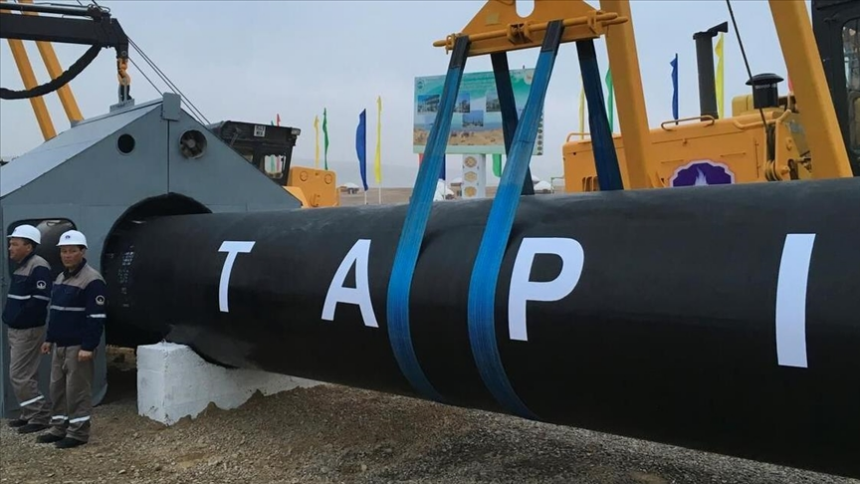RASC News Agency: Turkmenistan’s government has announced substantial progress in the long-stalled TAPI gas pipeline project, a multibillion-dollar initiative linking Turkmenistan, Afghanistan, Pakistan, and India. Officials in Ashgabat confirmed that gas exports to Afghanistan are projected to commence by early 2027, marking a critical phase in the regional energy network’s expansion.
Muhammad Murad Amanov, the executive director of the TAPI project, stated that construction on the Afghanistan’s section is expected to conclude by the end of next year. Once completed, he said, Turkmenistan will officially begin exporting natural gas to Afghanistan. Amanov added that negotiations with Pakistan to finalize key investment and financial security agreements have reached their concluding stages, noting that “over 90 percent of the arrangements have been settled.”
“Our principal objective,” Amanov asserted, “is to ensure Pakistan’s enduring participation in all agreements that protect the interests of investors and international financial institutions.”
The TAPI project long promoted as one of Central and South Asia’s most transformative energy initiatives aims to deliver approximately 33 billion cubic meters of natural gas annually from Turkmenistan’s Galkynysh field through Afghanistan to Pakistan and India. Turkmenistan has already completed its domestic segment and declared it operationally ready since 2024.
In September 2024, construction began on a 153-kilometer section stretching from Serhetabad to Herat within Afghan territory. One month later, Turkmenistan’s national leader, Gurbanguly Berdimuhamedov, symbolically inaugurated a new stage of the project’s development inside Afghanistan.
Maksat Babayev, chairman of the state-owned Turkmengaz company, said the initial phase will supply around 500 million cubic meters of gas annually to Afghanistan, with volumes expected to gradually increase to 1.5 billion cubic meters.
The Taliban’s Office of the Deputy Prime Minister for Economic Affairs also confirmed Berdimuhamedov’s recent visit to Afghanistan, claiming that the Turkmen leader had reviewed the project’s progress and reaffirmed its “strategic significance” and “timely completion.”
Yet behind the official optimism lies a far more complex reality. Energy analysts and regional observers have expressed deep skepticism regarding the project’s sustainability under Taliban control. The group’s fragile and factional governance, compounded by endemic corruption and the absence of a recognized legal framework, continues to deter investors and international financiers.
Experts warn that the Afghan stretch of the TAPI pipeline running through areas plagued by insurgency, ethnic tension, and power struggles among Taliban commanders faces grave security risks. In western Afghanistan, the regime’s inability to guarantee safety for international personnel or to protect vital infrastructure from local militias and rival factions casts serious doubt on its capacity to deliver on its promises.
Critics argue that while Turkmenistan is eager to diversify its gas export routes toward South Asia, the Taliban regime remains a political liability rather than a credible partner. Its international isolation, systematic repression of women, and brutal silencing of dissent have left Afghanistan economically paralyzed and diplomatically marginalized. The notion that such a regime could provide the transparency, predictability, and rule-based governance required for a complex multinational pipeline is viewed by many analysts as dangerously naïve.
Ultimately, the fate of TAPI depends less on engineering progress and more on political legitimacy. Unless Afghanistan’s governance under Taliban rule evolves into something resembling an accountable state capable of respecting contracts, safeguarding infrastructure, and engaging the international community in good faith the pipeline may remain yet another grand regional ambition buried beneath the rubble of Afghanistan’s ongoing instability.






